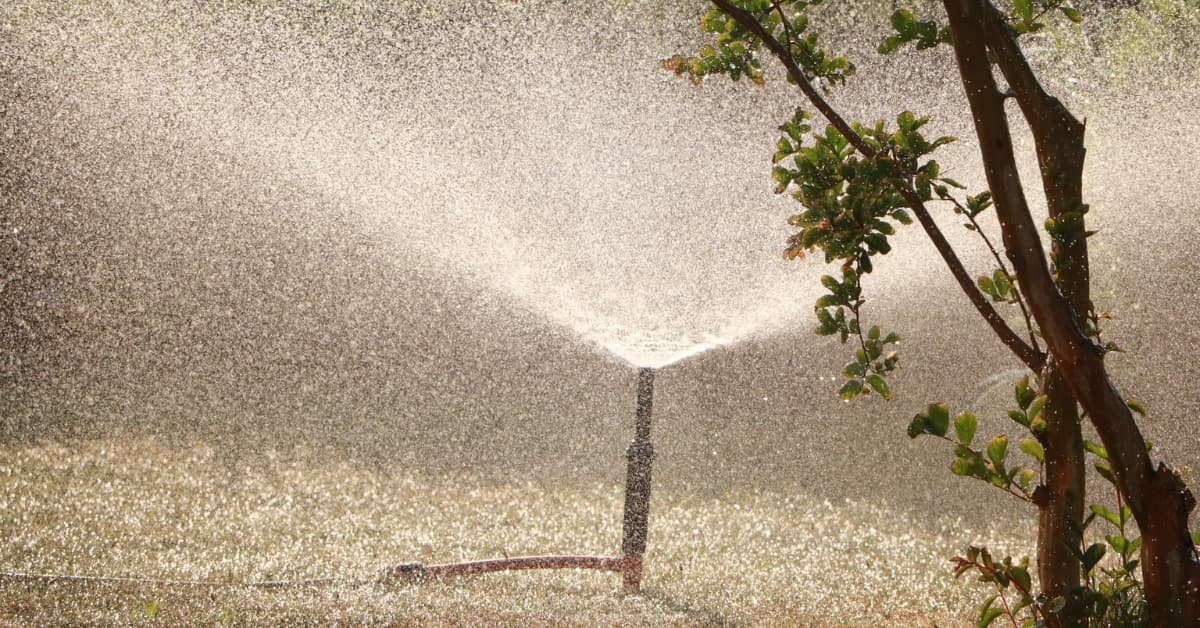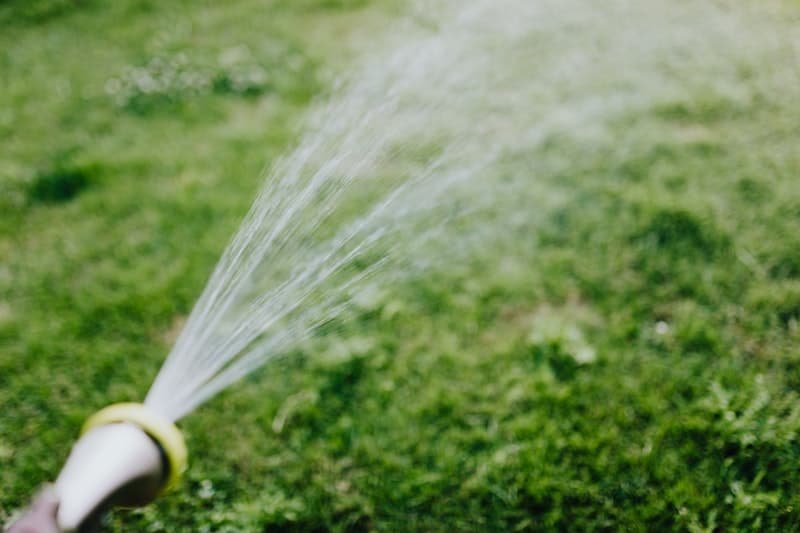
Maintaining a healthy lawn requires proper care and attention, especially when it comes to watering. Watering is essential for the growth and development of grass, and it plays a crucial role in germination when planting new grass seeds.
However, the timing and frequency of watering can significantly impact the success of your lawn. In this article, we will discuss the best time to water grass seed, along with important factors to consider, such as watering depth, frequency, and temperature requirements.
Before delving into the best time to water grass seed, it is important to understand the significance of watering. Watering helps to provide essential nutrients to the grass and maintain proper hydration levels, which is crucial for its growth and development. However, improper watering can lead to a range of problems, from poor germination to fungal growth and disease.
By understanding the best practices for watering grass seed, you can ensure the success of your lawn and enjoy a lush, green yard.
Short Summary
- Watering is crucial for maintaining a healthy lawn with properly cut grass, especially when planting new grass seeds.
- The best time to water grass is during the early morning, from 4 a.m. until 10 a.m., as it has less wind and lower sunlight, preventing water from evaporating too quickly.
- Water frequency should be at least twice or thrice a week, with a total of at least two inches of water each week, depending on temperature and rainfall in the area.
- Commitment to watering the grass is critical for successful germination, and keeping the ground properly moistened is key for healthy growth.
Watering before Planting
Prior to planting new grass seeds, pre-planting preparation is necessary to ensure the moisture level of the soil. The area should be watered to a depth of around eight inches several days before planting the new seeds. This allows the soil to adequately absorb the water and for the moisture to reach the deeper roots of the grass. Adequate pre-planting watering is necessary for the seeds to germinate successfully.
Watering the soil before planting the seeds ensures that the soil is moist enough to provide the necessary nutrients for the grass. Proper soil moisture is critical to seed germination, as it allows the seed to take in the necessary nutrients and minerals from the soil.
Watering the soil to a depth of around eight inches before planting the grass seeds also helps to create a healthy environment for the grass to grow. By ensuring that the soil is moist enough, the seeds will have a higher chance of germination, and the grass will be healthier overall.
Watering After Planting
Maintaining proper moisture levels in the soil is essential after planting new grass seeds to ensure successful germination.
After planting, it is important to water the seeds for around 10 minutes to ensure the first few inches of soil become gently moist. The duration of watering should be long enough to ensure that the soil is moist but not too long that it causes overwatering.
Overwatering can cause seeds to wash away or stick to shoes and can create muddy footprints on the lawn.
Watering frequency should be consistent and adjusted according to temperature and rainfall in the area.
Ordinary seeds require a considerable amount of moisture to grow, so it is important to maintain moisture on a consistent basis to prevent seeds from drying out and dying.
However, it is important to avoid overwatering as it can lead to waterlogging and cause the seeds to rot.
By watering the seeds as carefully as possible, the ground is properly moistened, which is critical for successful germination.
Watering Frequency

Consistency is key in ensuring the successful germination of grass seeds, with the watering frequency being a crucial factor that should be adjusted according to temperature and rainfall in the area.
Generally, it is recommended to water the grass at least twice or thrice a week, with a total of at least two inches of water each week. However, the watering schedule may vary depending on the climate and the type of grass seed used.
Some specially bred grass seeds are drought tolerant and require less watering, while ordinary seeds are not drought tolerant and require proper watering to prevent drying out and dying.
It is important to maintain the moisture level in the soil and avoid overwatering, which can cause the seeds to wash away or stick to shoes, and create muddy footprints on the lawn.
Adjusting the watering frequency and quantity according to the specific needs of the grass seed will help ensure successful germination and healthy growth.
Ideal Watering Conditions
Watering conditions that are optimal for grass seed growth depend on several factors, including temperature, humidity, and soil type. The ideal temperature for watering grass seed is between 65°F to 75°F, as temperatures below 60°F can slow down the germination process.
Additionally, high humidity levels can cause the seeds to rot, while low humidity levels can cause the soil to dry out too quickly. To ensure the best watering conditions, it is recommended to use a soil moisture meter to measure the moisture content of the soil and adjust watering techniques accordingly.
In addition to temperature and humidity, soil type also plays a crucial role in determining optimal watering conditions for grass seed growth. Sandy soils require more frequent watering, as they tend to dry out quickly, while clay soils retain moisture for longer periods and require less frequent watering.
It is important to maintain consistent moisture levels, as fluctuations in soil moisture can negatively impact seed germination and growth. By keeping these temperature requirements and watering techniques in mind, gardeners can ensure optimal watering conditions for successful grass seed growth.
Importance of Consistency
Ensuring proper moisture levels for grass seed growth is crucial for achieving successful germination and healthy plant growth. Consistency in watering is of utmost importance to maintain the required moisture levels.
A well-planned watering schedule is essential to prevent the seeds from drying out and dying. It is recommended to water the seeds at least twice or thrice a week, with a total of at least two inches of water each week. However, the frequency of watering may vary depending on the temperature and rainfall in the area.
Overwatering can be detrimental to the growth of the seeds, and it is essential to strike a balance between under and overwatering. A consistent watering schedule ensures that the seeds receive the required amount of moisture to grow into healthy plants.
FAQs
Can you water grass seed too much?
Overwatering risks include washing away seeds, creating muddy footprints, and preventing proper germination. It can also lead to fungal growth that damages the grass. Proper watering frequency and depth are critical to prevent overwatering and ensure healthy growth.
How long does it typically take for grass seed to germinate?
The time it takes for grass seed to germinate varies depending on the type of grass and factors such as temperature and soil moisture. Germination rates can range from 5 to 30 days. It is critical to maintain proper soil moisture throughout the germination process.
Are there any types of grass seed that require less watering?
Drought-resistant varieties of grass seeds require less watering than conventional seeds. Water-saving techniques, such as using a drip irrigation system or mulching, can help conserve water and maintain proper moisture levels for successful germination.
What is the best way to water grass seed without causing it to wash away?
To prevent runoff and ensure proper watering techniques for grass seed, it’s best to use a gentle, slow stream of water and water frequently in shorter intervals. This allows the soil to absorb the moisture without washing away the seeds.
Is it necessary to water grass seed at the same time every day?
Watering grass seed at the same time every day is not necessary for successful germination. However, it is important to maintain consistent soil moisture levels. The benefits of watering at different times include avoiding evaporation and waterlogging. Proper soil moisture is critical for grass seed germination.



